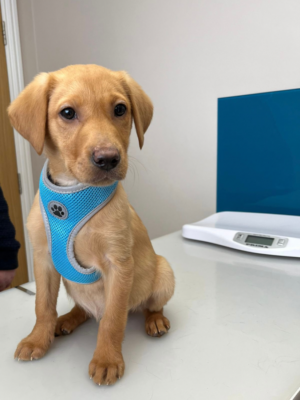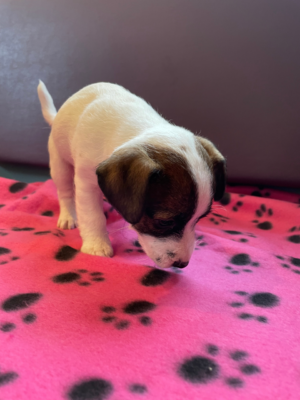Parasite Control
Parasite Information – why are we so interested in your pet’s parasite prevention protocol?
Much as all our pets are cute, they unfortunately can also harbour a host of parasites both externally and internally. Some of these parasites’ life cycles can also involve humans and affect human health as well as our pets.
Parasites your pet could have in the UK include:
- Fleas *
- Ticks *
- Lice
- Mites *
- Roundworm *
- Tapeworm *
- Lungworm
*The starred parasites are those that can affect humans
Fleas:
About the size of a pinhead, this parasite crawls through your pet’s coat biting through the skin to ingest blood. They can cause local irritation but if your pet is flea allergic it can also cause a more of a generalised skin reaction. Fleas are incredibly difficult to get rid of once you have an infestation. This is because 90% of the life cycle of the flea lives off the host (i.e. in the environment – our home). Prevention of fleas is easy – ensure your pet is regularly treated with prescription flea medication from your vets. You may also need to get a flea spray for the house and use this every 6-12 months to remove any environmental aspect of its lifecycle. You should also wash any bedding your pet uses in a hot wash (>60 degrees) and hoover the residence regularly. You will need to do these more often if you have an infestation. Remember to regularly empty the hoover bag/chamber, otherwise your fleas will happily set up camp in the bag!
Ticks:
These can vary in size depending on their lifecycle stage and whether they are engorged or not. They live in grassy areas and can attach to your pet’s fur and bite the skin. Ticks can transmit diseases such as Lymes disease, Babesiosis and Ehrlichiosis. Most prescription medications can significantly reduce ticks and therefore other diseases in your pets, but you should also get into the habit of checking your pets coat regularly. You can also purchase a tick remover tool which is a safe way of removing the tick without the risk of leaving any mouthparts in.
Lice:
Lice usually affect young animals. They are species specific which means humans cannot be affected by animal lice. They can be very itchy as they feed off the skin cells of your pet’s coat.
Mites:
The most common mite we see is Sarcoptes causing sarcoptic mange (commonly known as fox mange). Our pets can also pick up ear mites, harvest mites and demodex mites. Some of these can be tricky to diagnose as they are so small and hide deep in the skin, but most of these are easily preventable and treatable. Mites can be really very itchy and very irritating to our pets, so if you’re concerned your pet has mites, please let us know. Diagnosis is usually by performing a skin scrape; small scrapes are taken from the skin and examined under the microscope to look for these crawling creatures! Many of the flea and tick products we use are now licensed to prevent and treat these too.
Roundworm:
These are intestinal worms that complete their life cycle in the intestine of the host. Humans can accidentally pick up cat and dog roundworm eggs. Therefore it is really important to regularly worm your pet (particularly young puppies) and hygienically discard their faeces. Roundworms can be seen in your pet’s faeces: they are long and white.
Tapeworm:
Tapeworm are intestinal worms, and these can affect human health as well as your pet. There are various types of tapeworm that are transmitted either via eating raw offal, rodents, ingesting fleas or infected plants. Cats that are big hunters, or pets being raw fed are at greatest risk. Tapeworms are segmented and can look like small white grains of rice or cucumber seeds.
We recommend deworming your pet regularly and are happy to advise you on which product is most suitable for your pet.
If you are travelling back to the UK from Europe you will be required to treat your dog 1-5 days prior to re-entry into the UK. It is also recommended to deworm again 30 days after re-entering the UK.
Lungworm:
Cases of lungworm are increasing in the UK. Lungworm is transmitted via slugs and snails most commonly by your pet eating these! It is also possible to ingest them from licking or playing with toys or food bowls that slugs have crawled across. Most common signs we see include coughing, sometimes with blood. Although it is treatable, when left untreated, lungworm is potentially fatal. Monthly lungworm treatment with a recognised product will undoubtedly help reduce infection risk.
There are also other parasites that live outside the UK, therefore if your pet has travelled or come from a country outside of the UK it is important to check for other parasites as well as the diseases these parasites can transmit. If you are planning to travel beyond the UK, we advise you researching the potential risks in the countries you are visiting.










